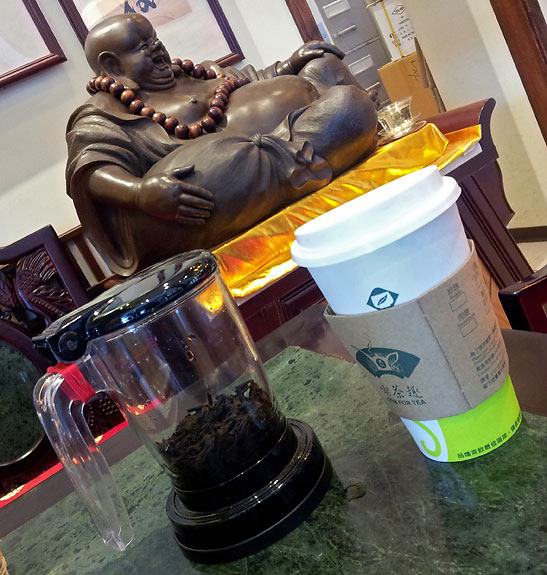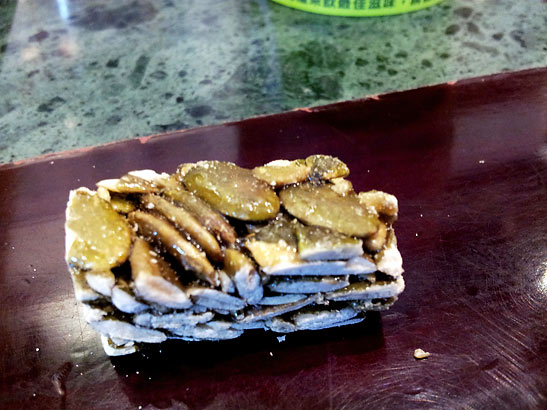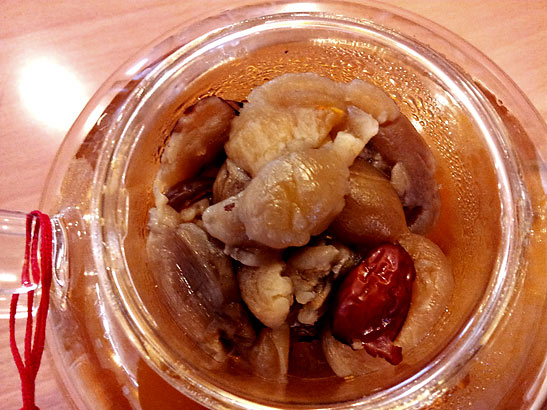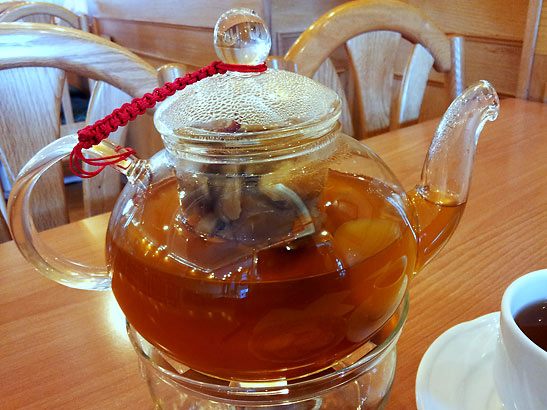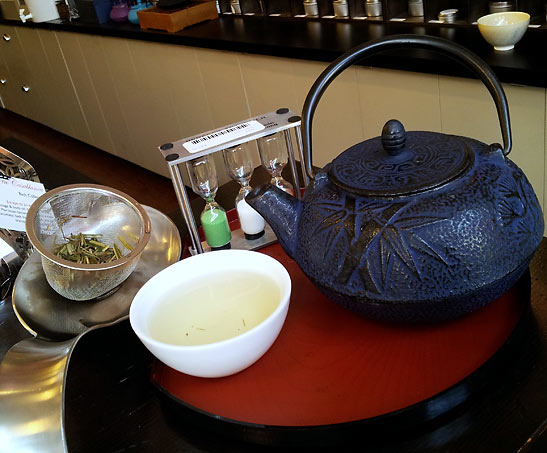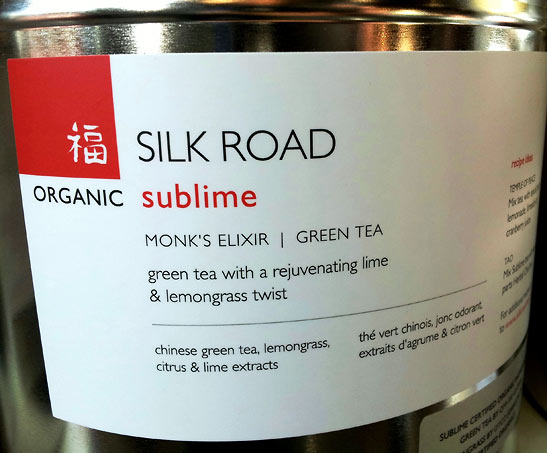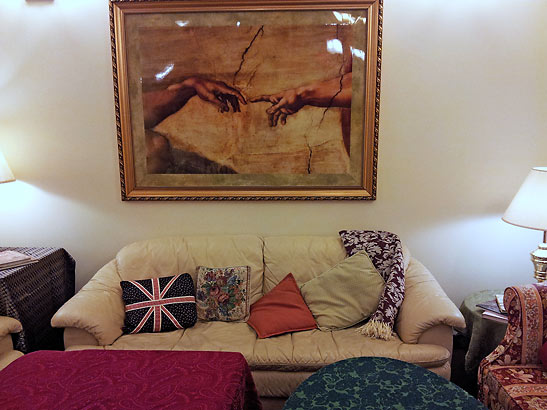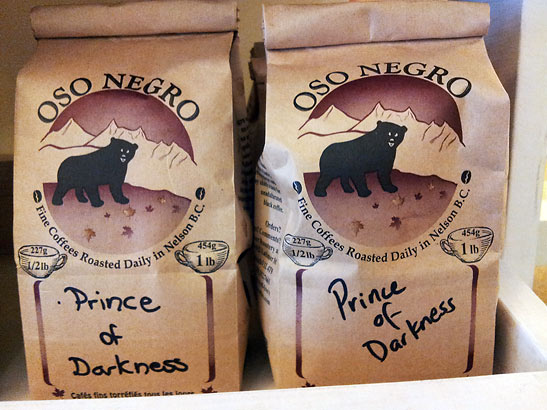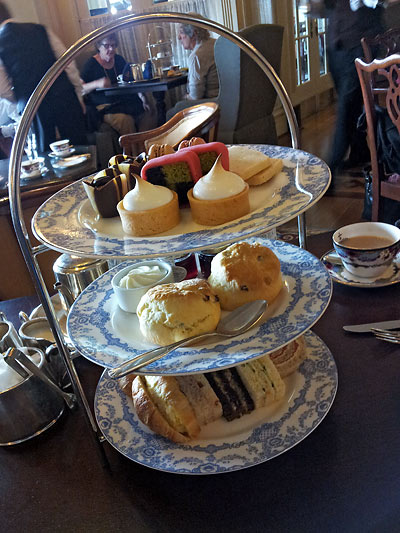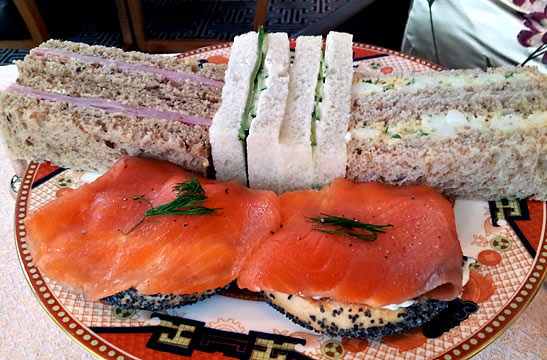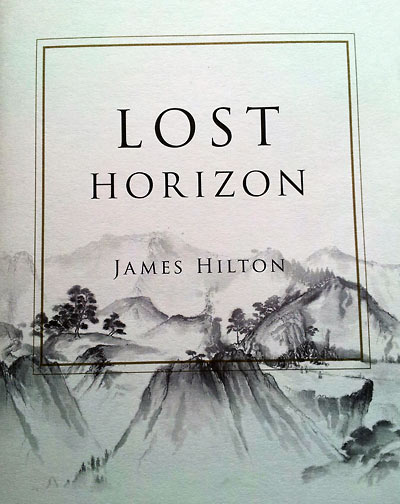 |
 |
|
 |

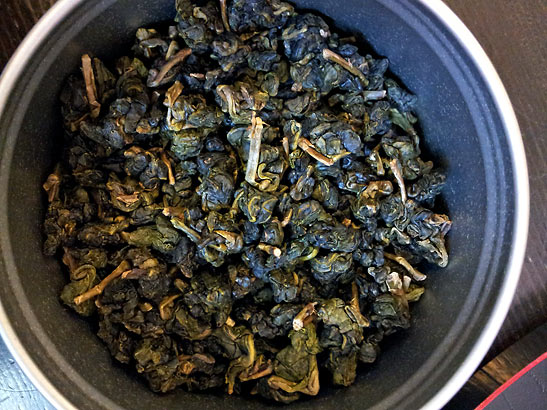 Tea at Silk Road in Victoria Tea From Richmond
to Shangri-la, British Columbia "...to tell his whole story in the past tense
would bore him a great deal "The tea is the journey and the journey
is tea."
Richmond, British Columbia is about 60 to 70 percent Asian and much of that percentage are Hong Kong Chinese. In fact, certain parts of Richmond seem like Hong Kong, sans the skyscrapers. Without exaggeration, hundreds of Asian restaurants, eateries, tea shops and hole-in-the-wall joints populate the landscape. Strange historical side-streets bisect lengthy Los Angeles-style thoroughfares, and entire Asian-themed shopping centers seem to emerge over and over again. Some are new and shiny, while others are more stripmall-like in their grungy atmospherics. All in all, Richmond is a perfect place to begin a jaunt, a righteous town in which to launch an exploration of one's lost eastern half, but through the muse of tea. Aberdeen Centre is one of the newer-fangled Asian shopping malls, with multicolored glass paneling reflecting the autumn sun, outside on the top story. The elder woman inside Ten Fu Tea & Ginseng looks horrified by yours truly when I walk in. Apparently she's not accustomed to a Zappa-looking freak walking in with a Moleskin notebook and ordering a dark earthy pu'erh, claiming it connects him to the earth in some strange quasi-yogic psychobabble. Her English is fluent when she tells me they only sell tea to go. Apparently there's no place for me to camp out with a pot, so she fills a steeper with pu'erh and lets me hang out and stare at all the multicolored tins of tea and Buddhist figurines.
After a few minutes of my lazy browsing, she finally motions for me to park myself at a ceremonial mahogany table near the back, where I take a cup of the tea. She slides me a bowl of pumpkin seed candy, fantastic stuff, and then moves away to help other customers, all Chinese. I assume I've won her over. She no longer looks horrified. I can guess what's happening. Since a majority of westerners and/or geriatrics roll in and order something like the stock Jasmine tea, the uncreative generic stuff, she can tell I'm a different kind of customer. That is, one who knows pu'erh, one who has a preference. As my Zappa-turned-Kerouac self sits there scribbling in my notebook and scarfing the pumpkin seed candy, there's nothing for her to be confused about. By now, the pu'erh has elicited serenity of the utmost sort. Dharma and the Mysterious Third Ingredient Directly across Cambie Street from Aberdeen Centre, the Vancouver International Buddhist Progress Society occupies the sixth floor of the Radisson Hotel building, the only such scenario on earth. There's a temple, a bookstore, classrooms, a jewelry and souvenir store, plus a tea shop. Upon my arrival, I'm the only one in the tea shop. Everything seems the same beige color, the tables, chairs, walls, everything. Soft piano jazz emanates from the speakers above me. An older Chinese lady toils away behind the counter and looks utterly horrified when I walk up. I guess I still don't look like a tea drinker. She hands me a laminated menu and I scan the offerings. Pointing to ginger longan tea, I say, "This one." She speaks no English, but she acquiesces and motions for me to sit anywhere in the shop, which is still empty. I slither into a table at the front corner as she gets on the phone to call someone. I understand no Chinese, but I can tell she's phoning for help of some sort. Within a minute, a young woman comes over from the temple area down the hall and informs me that the tea shop doesn't take cash. I have to get a meal ticket and my pot of tea is seven dollars. No problem, I say, getting up. After walking over to the temple area, I see a few ladies behind a check-in table of some sort, wearing what look like red flight attendant uniforms. I give them the cash and they issue me a small laminated ticket. The temple is closed off at the moment, so nothing's going on. I migrate back into the tea shop and give the woman my ticket. She apologizes in Chinese for the trouble, managing the word, 'sorry' in the middle somewhere. The tea arrives ten minutes later. A see-through glass pot reveals strange unidentifiable meaty-looking stuff in the infuser. Turns out it's ginger, longan and something else I can't identify. In fact, it's hard to tell the ginger from the longan.
But the tea is amazing. A sweet fruit-like symphony of taste seems to sand down the edges of the ginger notes. Gorgeous. Sad to say, I feel ashamed to admit I don't know what a longan is. I should. I ask the woman about the ingredients and she can't answer since she possesses hardly any English. But she manages to say, 'ginger,' 'longan' and one other ingredient, in Chinese. For that third ingredient, she apparently only knows the Chinese name. After looking at the borderline aquatic-species-experiment enshrouded inside the infuser, I am intrigued to know what the third ingredient is. Some kind of fruit, but I can't tell. The woman can sense my intrigue, so she leaves the shop and returns a moment later with the janitor. He was pushing a wheeled garbage can down the hall and apparently knows English. "Do you need help?" He asks. "I just want to know what's in this," I reply, pointing to the infuser. All three of us then laugh. Ginger, longan and some other Chinese thing? I ask. "I don't know how to say that in English," the janitor says. I ask the janitor to write it down in Chinese, which he graciously does, and then I have to blast it on Facebook, so my Chinese friends can translate. Turns out it's a dried red date, or something similar. The mysterious third ingredient. I could have probably figured it out, but I just like saying that: The mysterious third ingredient. It has a ring to it. I can't tell if I'm in a Graham Greene story or a cold war-era John Le Carre novel. But I am serene in the mystery.
When I finally depart, 45 minutes later, I am still the only one in the shop. The woman says thank you in English, and I attempt to say xie xie, but fail miserably. Go West, My Wayward Son If Richmond constitutes an intrinsic place to salvage the lost Eastern half of myself, Victoria, just across the water on Vancouver Island, presents an opportunity to salvage the lost Western half. And when those two eventually meet and fuse together, the result is Shangri-la. In Victoria, British Columbia, eventually leaving a place called Silk Road, I go through the Gates of Harmonious Interest, right to Venus Sophia, where I find the Prince of Darkness. That is not hyperbole. That's exactly what unfolds. Meaning, I'm at the end of the tea bar at Silk Road Tea, just outside Victoria's Chinatown, looking at a wall of oolong, black, white, green and herbal teas. It is not a fancy schmancy place. Tourists come in off the bus seemingly every five seconds. Hipster gifts and tea supplies occupy shelves everywhere. As I spend an hour with a pot of earthly-dark brown pu'erh, I scope out numerous designer tea steepers, infusers, mugs, timers, strainers and displays of exotic glassware, ceramic and cast-iron tea sets. The tourists and nuclear families seem startled and horrified at some loudmouth like me sitting at the end of a tea bar, carrying on about tea as the muse of creativity, fusing the mental with the physical. They seem confused.
The barista dude elaborates on everything about tea, not just for me, but to everyone who comes in. He knows a lot more than I do. And the pu'erh is connecting me to the earth, so his commentary is refreshing. Not that many people walk in and order pu'erh, he tells me. They usually want the floral stuff. In my best sober Jack Kerouac-ian English, I say to the barista dude: "You know, I just need to find some esoteric Chinese place with lizards crawling across the fibrous wooden floor, tons of ginseng root hanging on twine, fucked up herbs in every tin cylinder, and a cast iron pot of earthy pu'erh tea, darker than dark chocolate, bark-tasting, the kind that shatters the space-time continuum and reconnects me to Tang Dynasty hermits. And then the solitude will be enhanced even more. Know any places like that around here?" He can't recommend any, but he appears sympathetic. In any event, Silk Road is unique among tea shops. Each tea has a title and a subtitle. Alchemist's Brew is "Tea of Transformation." Herbal Chai is "Cosmic Consciousness," while Sublime is the "Monk's Elixir." That last one is calming me down. Considerably so.
Love and Wisdom Victoria's Chinatown is not that big, just a few blocks, but it's the oldest one in Canada. I enter through the 40-foot-high Gates of Harmonious Interest, a landmark built in Victoria's sister city, Suzhou, and presented to Victoria in 1981, partly to memorialize the 61 Chinese-Canadians who fought and died in World War Two. The monument symbolizes a combination of opposites, or yin and yang to be more precise – unity in duality. Male and female lions grace each side of the entrance. Singh means lion, so I feel at home. Just down this particular street, Fisgard, I discover the goddesses of love and wisdom. Venus Sophia is a tea shop and vegetarian eatery filled with eclectic furniture, paintings, vintage bicycles on the walls, Indian travel books, and tea supplies. A golden pu'erh beckons me and I slide into a corner table after ordering a pot.
Victoria is definitively British, but as my western half perceives the place, Venus Sophia, this soothing little sanctuary in Chinatown, this gorgeously oddball tea shop successfully merges east and west. My two halves seem to harmonize. For a moment, I feel a sense of belonging. No more of this Nehru-style, "mixture of East and West, out of place everywhere, at home nowhere," stuff. They even sell Oso Negro coffee from not too far away. Prince of Darkness looks right at me from the shelf. Unfortunately, the Princess of Darkness, a complimentary blend, is sold out. There's none left. Somehow, I find this to be symbolic of this whole journey, in some strange Jungian, animus-and-anima sense.
Kipling's Empress Muse The Canadian capital of high tea, Victoria's Fairmont Empress, was the first property to cement the concept of British-style high-tea-society anywhere in North America. I learn via some impossible cosmic transmission of tea sommelier knowledge that Rudyard Kipling considered this hotel to be his muse. He drank tea here about the time it first opened, in 1908. In fact, Kipling visited Vancouver Island a few times. Fortunately or unfortunately, he didn't have to deal with convoys of tour buses all day long and incessant amounts of whale watching rubberneckers from across the planet, but he raved about the island in various letters and other writings. He praised Victoria as a fine Devon-style country land where retired civil folk from the good old British Empire could sit around and productively loaf. Photos of Kipling, among various royal family members, highlight quite a few walls, in and about the property.
The tea room, a mammoth space, (for a tea room, that is), serves 500,000 cups of tea each year. I am grateful for the Devil's Chocolate and Pistachio Battenberg, the Rose Petal Shortbread, and the Cognac Port Pâte on Sun-dreid Tomato Bread, all while I consume the Empress special blend of Assam, Kenyan black, Kenyan green, Sri Lankan Dimbula and Keemun. The blend is a copper-colored symphony of notes and flavors, although my orchestration chops are long gone, so I can't describe the different ranges of the instruments and how they compliment each other in this fabulous blend of tea. Since I am the only Zappa-looking dude in the whole place, which is filled with tourists and nuclear families, I sense a tad of uncomfortable stares, especially from the blue-hairs. But I am dressed at least as good as most of them, oddly enough. The Muse as Connection Machine in Shangri-la Finally, the two halves meet. Finally, I feel integrated. Two lion-like statues on West Georgia Street in Vancouver signal I have found it: Shangri-la. Everything comes into perspective, here, amid towering skyscrapers, glass, concrete, dismal skies, shopping, lattes, high finance, urban parks, plus outdoorsy-jacket-and-shorts-wearing cyclists in the pouring rain, and all the things that characterize Vancouver. And the Shangri-la Hotel is now the city's tallest building. Throughout the hotel, certain rooms and spaces are named after characters and scenarios from Lost Horizon, the book that gave us the word, Shangri-la. The hotel brand started in Singapore, the lion city, hence the two lions out in front. I share a surname meaning lion, so everything comes into perspective. The Shangri-la brand already fuses east and west, even if it seems old and cliché to say it that way. Heck, these days, Vancouver itself is just as much a part of Asia as it is a part of North America, really. Which is why I love it so much. In Shangri-la, I feel more at home here than anywhere. No more disenfranchised Nehru stuff. I am serene, at least during the afternoon tea. As a result, I don't even have to look for an excuse anymore. Everything about the Shangri-la, including the tea service, fuses native with exotic, intimacy with distance, east with west, yin with yang, serenity with chaos. That is the whole idea, from top to bottom, inside and out, around and between. I think the ancient alchemists were right when it comes to that certain merging of opposites and transcending duality stuff. One becomes a more whole and integrated person. In the Shangri-la, Xi Shi is the bar where the tea service is presented. I am grateful to experience the Szechuan Peppercorn Creme Brulee, the Mango Cream with Sago and Pomelo, plus a Black Sesame Macaron atop a tiered platter next to my Single Estate Oolong from the Fujian province of China.
As I take in the last sip, realizing that each and every sip of tea is indeed a journey, like the aphorism goes, I notice the in-house guitar player is playing and singing a serene jazzy version of Van Morrison's Into the Mystic. Way off down past the lobby, I can just barely see the traffic outside on Georgia Street, but I hear none of it. Very, very zen inside this place. There is no need to explore this land any further. I am done.
"But that isn't doing anything." "Then, madam, they do nothing." "I thought as much." She found the occasion to sum up. "Well, Mr. Chang, it's a pleasure being shown all these things, I'm sure, but you won't convince me that a place like this does any real good. I prefer something more practical." "Perhaps you would like to take tea?"
Related Articles: |
|
Your tea adventures are especially interesting because I've always associated tea with British etiquette or a bevy of women wearing dainty victorian costumes and sipping tea with their little pinky sticking out. To see Tea from a man's perspective brings new light in a man's psyche. I've been among the many silent admirers of your writings for a long time here at Traveling Boy. Thanks for your very interesting perspectives about your travels. Keep it up! --- Rodger, B. of Whittier, CA, USA
|
This site is designed and maintained by WYNK Marketing. Send all technical issues to: support@wynkmarketing.com

|






 e only sell tea to go," says the woman at Ten Fu Tea in the Aberdeen
Centre shopping mall in Richmond, British Columbia. As I stand there
disappointed, I contemplate leaving, but something tells me to stay.
The low-frequency roar of the fountain outside in the mall mixes nicely
with the erhu and pipa music I hear on the canned system. And I see
a wide variety of loose leaf pu'erh, oolong. and black tea. Tiny cast-iron
pots tipping the scales at $150 also seem nice to look at. So I order
pu'erh in a to-go cup, championing its muse-like tendencies to fuse
the eastern and western halves of myself.
e only sell tea to go," says the woman at Ten Fu Tea in the Aberdeen
Centre shopping mall in Richmond, British Columbia. As I stand there
disappointed, I contemplate leaving, but something tells me to stay.
The low-frequency roar of the fountain outside in the mall mixes nicely
with the erhu and pipa music I hear on the canned system. And I see
a wide variety of loose leaf pu'erh, oolong. and black tea. Tiny cast-iron
pots tipping the scales at $150 also seem nice to look at. So I order
pu'erh in a to-go cup, championing its muse-like tendencies to fuse
the eastern and western halves of myself.